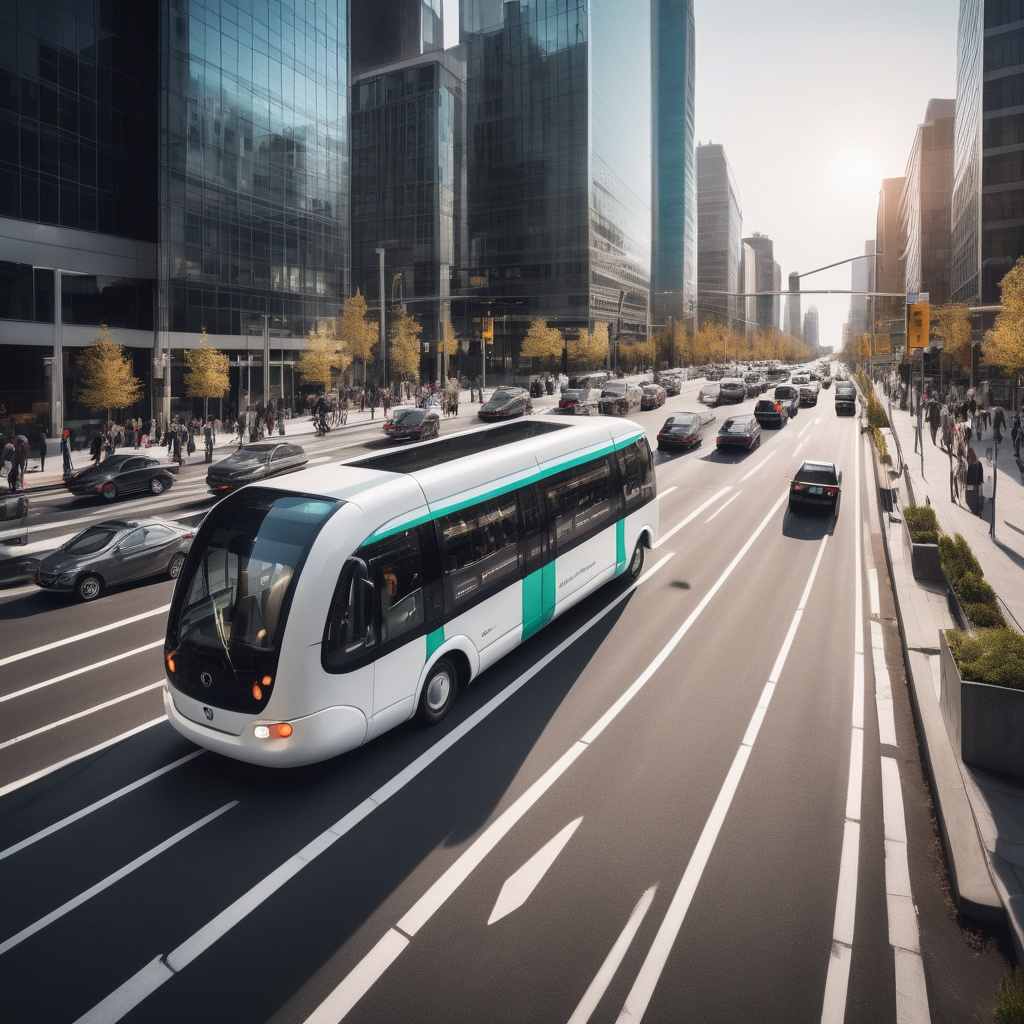
Reinventing Urban Mobility: The Future of Smart Transportation
As urban environments continue to grow in both size and complexity, the demand for innovative transportation solutions has never been more pressing. Smart transportation is emerging as a critical component in reinventing urban mobility, promising to enhance connectivity, reduce congestion, and improve sustainability. This article explores the transformative potential of smart transportation technologies, highlighting opportunities for entrepreneurs and investors to engage in this dynamic sector.
The Smart Transportation Ecosystem
Smart transportation encompasses a spectrum of technologies and innovations aimed at creating more efficient, safe, and sustainable urban transit systems. From electric vehicles (EVs) to connected infrastructure and autonomous transport systems, smart transportation is revolutionizing the way people and goods move within cities.
A cornerstone of smart transportation is the widespread adoption of EVs. According to the International Energy Agency (IEA), the global fleet of electric vehicles has surpassed 10 million, with sales expected to accelerate further as governments implement policies to reduce emissions. The development and deployment of electric public transport systems, such as electric buses, are also gaining momentum, offering sustainable alternatives to traditional diesel fleets.
Technological Innovations and Market Potential
Advancements in connected vehicle technology are reshaping urban mobility. Vehicle-to-everything (V2X) communication enables vehicles to interact with each other and with infrastructure, enhancing traffic management and safety. Intelligent traffic systems utilize data analytics and AI algorithms to optimize traffic flow, reducing congestion and emissions. According to a study by McKinsey & Company, connected and autonomous vehicles could generate up to $1.5 trillion in economic value by 2030.
Additionally, micro-mobility solutions, such as e-scooters and bike-sharing platforms, are gaining traction as convenient alternatives for short-distance travel. These solutions offer last-mile connectivity and help alleviate congestion in urban centers. The growing micro-mobility market presents a substantial opportunity for startups to innovate solutions that cater to urban commuters seeking flexible and eco-friendly options.
Investment Opportunities and Urban Transformation
The smart transportation sector is witnessing significant investment activity as stakeholders recognize its transformative potential. Global investments in mobility technologies reached $70 billion back in 2020, with startup funding experiencing robust growth. Investors are capitalizing on technologies that enhance urban mobility, recognizing the vast opportunities for disruption within traditional transportation systems.
Entrepreneurs entering the smart transportation space have the potential to contribute to smarter, more sustainable cities. Solutions that integrate data analytics, IoT, and AI to enhance mobility services are particularly appealing to investors. Collaborations between tech companies, automotive manufacturers, and urban planners will be crucial in driving the successful deployment of smart transportation solutions.
Challenges and the Path Forward
Despite the promise of smart transportation, challenges such as infrastructure readiness, data privacy, and regulatory hurdles must be addressed. Integrating diverse technologies into existing urban environments requires strategic planning, public-private partnerships, and adherence to regulatory frameworks that ensure safety and security.
Nevertheless, the trajectory of smart transportation remains positive. As cities worldwide commit to sustainability goals and modernize their infrastructure, the push towards smart transportation will continue to gain momentum. For entrepreneurs and investors, embracing the technologies driving this revolution offers an opportunity to reshape urban mobility, improve quality of life, and contribute to a sustainable urban future.
In conclusion, as smart transportation continues to evolve, it holds immense potential to redefine urban landscapes and enhance global mobility. By investing in innovative solutions and seizing the opportunities presented by this rapidly growing field, entrepreneurs and investors can be at the forefront of a transportation revolution, driving progress, sustainability, and prosperity in the cities of tomorrow.
 Back to Blog
Back to Blog 11-05-2025
11-05-2025